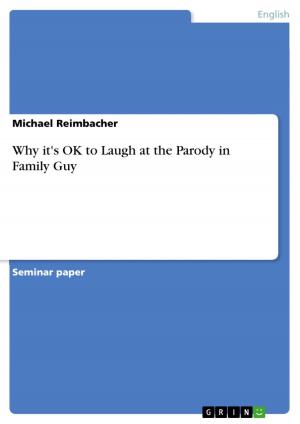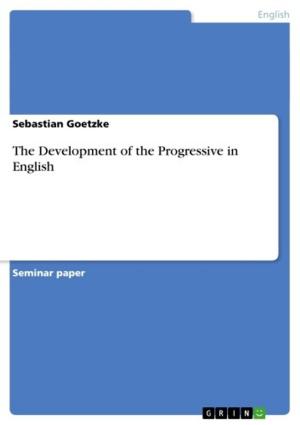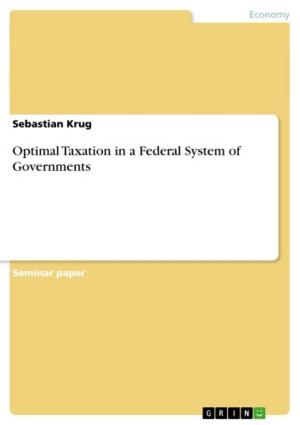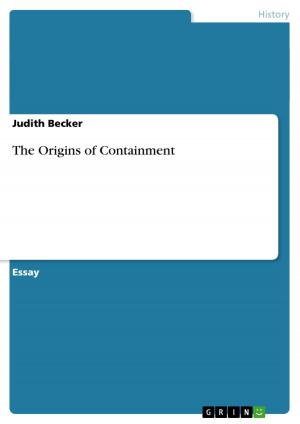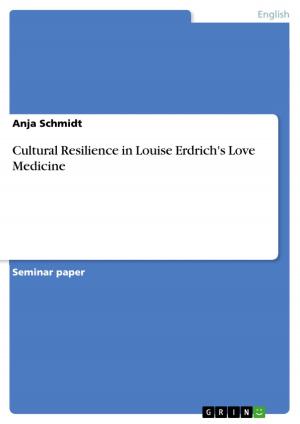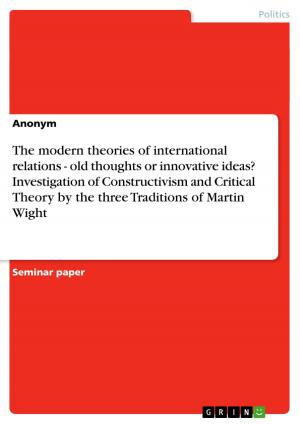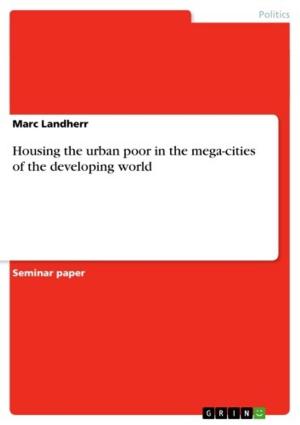The EU and the World Market for Sugar - Finally Sweets for the Developing Countries?
Finally Sweets for the Developing Countries?
Nonfiction, Social & Cultural Studies, Political Science, Politics, Economic Policy| Author: | Björn Eller | ISBN: | 9783638466844 |
| Publisher: | GRIN Publishing | Publication: | February 8, 2006 |
| Imprint: | GRIN Publishing | Language: | English |
| Author: | Björn Eller |
| ISBN: | 9783638466844 |
| Publisher: | GRIN Publishing |
| Publication: | February 8, 2006 |
| Imprint: | GRIN Publishing |
| Language: | English |
Seminar paper from the year 2005 in the subject Business economics - Economic Policy, grade: A, Corvinus University Budapest, course: International Trade Policy, 0 entries in the bibliography, language: English, abstract: 'Without needs the EU murders existences!' is written in big letters on bills in my homevillage in Germany, which is dominated by agriculture. Most of the farmers earn at least some parts of their income out of selling sugar beets. On the other hand 1000km away in Brussels José Manuel Barroso, President of the European Commission, who doesn't miss to repeat in any interview the same requirenment: 'It's not only about agriculture, it's about services, it's about industrial products, it's about intellectual property rights,' he is insisting. The following Policy Paper is going to show why the sugar subsidies are such a sensitive and important issue and which results the forthcomming reforms of the Common Market Organization (CMO) for sugar will have. On the 24th of November the European Union Agricultural Ministers agreed on a new cornerstone in the discussion about the reform of the CMO for sugar. Within the recent months the attention about this reform has grown constantly. On one side the affected farmers (especially in France and Germany) of the EU that didn't want to give up the current status quo; on the other the developing countries that increase their pressure on the EU to open up markets. In respect of the negotiations in the current world trade rounds, which got stuck, the EU was obviously willing to sacrifice a pawn in order to strengthen its position in the negotiations of other (more profitable) topics (e.g. Trade and Services). Due to the delicate history with failures of the Ministerial Conferences in Seattle (3rdConference), the partial failure of Doha (4thConference) and finally Cancun (5thConference) the Honk Kong meeting should deliver a more significant outcome in this topic. Otherwise the whole GATT respectively the WTO-system might be on disposition. In addition it is important to note that the sugar sector is the only agricultural sector that hasn't been affected by both of the two big WTO reforms in 1992 (McSharry Reform) and in 2003 at all. But why is the sugar production such a sensitive topic at all?
Seminar paper from the year 2005 in the subject Business economics - Economic Policy, grade: A, Corvinus University Budapest, course: International Trade Policy, 0 entries in the bibliography, language: English, abstract: 'Without needs the EU murders existences!' is written in big letters on bills in my homevillage in Germany, which is dominated by agriculture. Most of the farmers earn at least some parts of their income out of selling sugar beets. On the other hand 1000km away in Brussels José Manuel Barroso, President of the European Commission, who doesn't miss to repeat in any interview the same requirenment: 'It's not only about agriculture, it's about services, it's about industrial products, it's about intellectual property rights,' he is insisting. The following Policy Paper is going to show why the sugar subsidies are such a sensitive and important issue and which results the forthcomming reforms of the Common Market Organization (CMO) for sugar will have. On the 24th of November the European Union Agricultural Ministers agreed on a new cornerstone in the discussion about the reform of the CMO for sugar. Within the recent months the attention about this reform has grown constantly. On one side the affected farmers (especially in France and Germany) of the EU that didn't want to give up the current status quo; on the other the developing countries that increase their pressure on the EU to open up markets. In respect of the negotiations in the current world trade rounds, which got stuck, the EU was obviously willing to sacrifice a pawn in order to strengthen its position in the negotiations of other (more profitable) topics (e.g. Trade and Services). Due to the delicate history with failures of the Ministerial Conferences in Seattle (3rdConference), the partial failure of Doha (4thConference) and finally Cancun (5thConference) the Honk Kong meeting should deliver a more significant outcome in this topic. Otherwise the whole GATT respectively the WTO-system might be on disposition. In addition it is important to note that the sugar sector is the only agricultural sector that hasn't been affected by both of the two big WTO reforms in 1992 (McSharry Reform) and in 2003 at all. But why is the sugar production such a sensitive topic at all?

